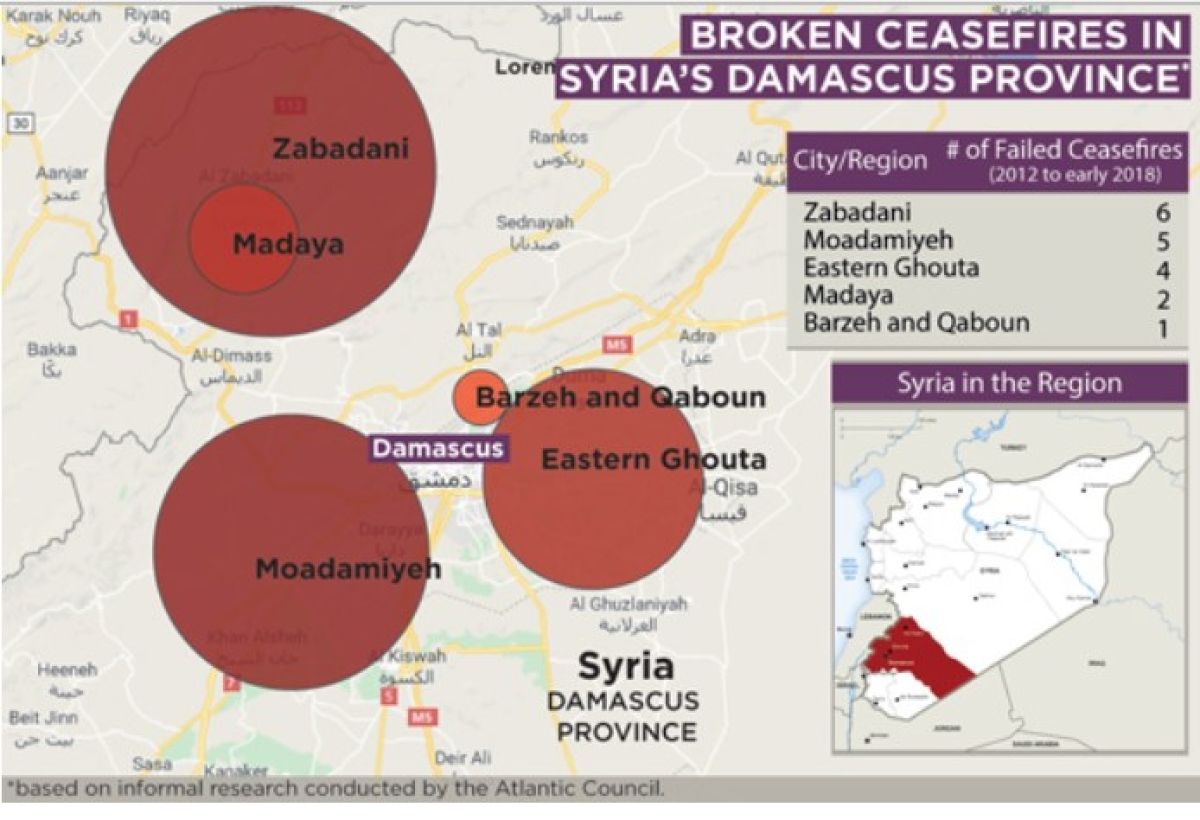Nach Abkommen: Russland bombardiert den Hafen von Odessa

Quelle: Atlantic Council
Kaum war ein Abkommen über Ausfuhren von Getreide aus der Ukraine unterzeichnet, hat Russland die Hafenstadt Odessa mit Raketen angegriffen. Das erinnert an Waffenstillstände in Syrien, die auch nie eingehalten wurden.
Einhellig wurde gestern ein in Istanbul unterzeichnetes Abkommen zwischen der Ukraine und Russland begrüßt, das es endlich ermöglichen sollte, vor allem in Afrika und Asien dringend benötigtes Getreide aus ukrainischen Häfen zu exportieren.
Nur Stunden später bombardierte die russische Armee den Hafen von Odessa mit Raketen:
"Barely twelve hours after Moscow signed a deal with the Ukraine to allow monitored grain exports from Ukraine’s southern ports, Russia targeted Ukraine’s main port of Odesa – through which grain shipments would take place – with cruise missile strikes.
The enemy attacked the Odesa sea trade port with Kalibr cruise missiles,” the Operational Command South wrote on Telegram app, raising new doubts about the viabiltiy of the deal which was intended to release some 20 million tonnes of grain to ward of famine in large parts of the developing world.
In one of the largest attacks on the city since the war began, the air strikes rattled buildings in the city centre and sent up a plume of smoke that was visible across the city.
On Odesa’s seafront, beachgoers applauded as the city’s air defences brought down two of four missiles, with the remaining two hitting the port. The attack on Odesa was one of a series of Russian strikes across Ukraine, with the city of Kropyvnytsky being hit by 13 missiles on Saturday morning.
The new attacks came hours after Moscow and Kyiv signed deals with the United Nations and Turkey that were intended to avert a global food crisis. The agreements clear the way for the shipment of millions of tons of Ukrainian grain and some Russian exports of grain and fertilizer held up by the war."
Schon im Vorfeld des Abkommens wurde die Warnung laut, dass Abkommen, die der Kreml unterzeichnet, nicht viel wert sein. Das war schon in Syrien so, wo unzählige Waffenstillstandsabkommen geschlossen wurden, nur um kurze Zeit später dann gebrochen zu werden.
Daran erinnert ein Artikel des Atlantic Council aus dem Jahr 2018:
There are a few key reasons why all the ceasefires, de-escalation agreements, humanitarian pauses, and cessations of hostilities eventually collapse in Syria.
One of the main downfalls to any ceasefire attempt is the regime’s outlook on the war, namely, the fact that it does not recognize the legitimacy of any opposition that challenges its political monopoly over Syria. Rather, Syrian President Bashar al-Assad views these challengers as traitors to the nation, fools tricked into believing their cause is just, or sectarians out to subjugate the Alawite sect. Assad believes absolute control over all of Syria is the only way to subdue and deter such challengers. Such a view of the conflict necessitates that rivals be destroyed or reintegrated into the very regime structures against which they rebel. (...)
After seven years of war, Western policymakers and diplomats still seem unable to grasp basic truths about the situation in Syria. Having rightfully condemned the regime for its atrocities, these actors fail to see the war through Assad’s eyes. Consequently, those in Washington and Brussels continue to expect the regime to behave in ways that undermine its own interests and contradict its understanding of the war. Alongside this myopic view, the West continues to place substantial faith in Russia’s willingness and ability to curb regime excesses and secure lasting, meaningful ceasefires, and cessations of hostility. Russia has indeed backed a number of these initiatives, yet it is Assad who decides whether they hold. All he has to do is break a ceasefire in order to impose new realities on all other parties. Since so few have, one (or both) of two things is true:
The explanation least charitable to Russia is that it supports continued regime violations even as it strings western governments along in diplomatic initiatives. The Kremlin does so by distracting international rivals, projecting respectability as a responsible member of the international community, and buying time for the Assad regime to complete its reconquest of Syria. Based on the situation on the ground in Syria, this strategy, based on a combination of Russian cynicism and masterful execution, it appears things have gone exactly to plan.